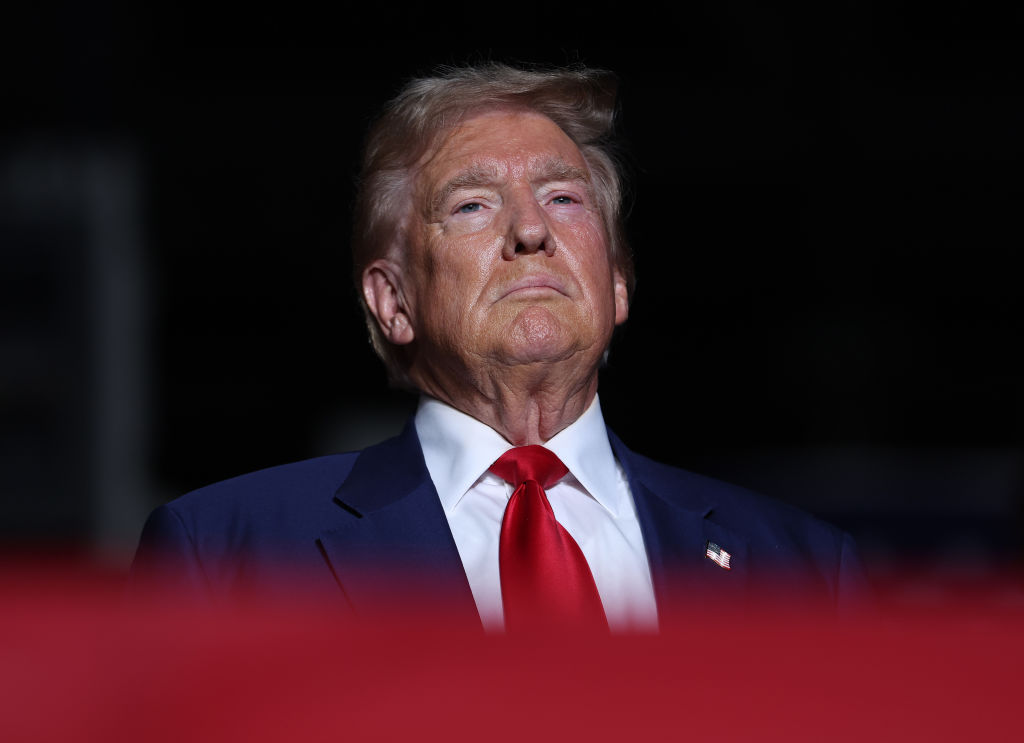Can Donald Trump undo the years of progressive indoctrination in American educational institutions? He’s going to try.
The Trump campaign has been vocal about its intent to counter Left-wing dogma in American schools, but the specifics remain underdeveloped. One of the campaign’s key promises is to cut federal funding to any school that is found to push “critical race theory, radical gender ideology, and other inappropriate racial, sexual, or political content on our children”.
Additionally, the campaign pledges to “restore parental rights in education”, though the campaign does not specify what policies will be taken to accomplish this. Trump has vowed to pursue legal action against universities that engage in racial discrimination, yet stops short of offering specific measures to combat the promotion of DEI and critical race theory in colleges.
While there is a clear appetite among the public to combat the increasingly radical political messaging in schools, Trump’s current campaign proposals simultaneously do too much and too little. The promises do too much because they interfere with classroom instruction in a way that is unlikely to withstand legal scrutiny. They do too little because they ignore other, more effective ways to combat indoctrination in schools.
Similar policies at the state level provide some instructive examples of what does and doesn’t work. Kentucky’s anti-DEI bill ultimately failed to pass because it was considered too vulnerable to legal challenges. Republican Kentucky State Senator Mike Wilson cited concerns that the bill would not withstand judicial scrutiny, while the ACLU criticised it as overly broad and intrusive.
Similarly in higher education, Florida’s “Stop WOKE Act” was halted by a federal judge for violating the First and Fourteenth Amendments due to its restrictions on educational content. And in New Hampshire, a bill aiming to ban the teaching of “divisive concepts”, such as the “superiority” of any particular racial group in K-12 schools, was struck down for being too ambiguous in its definitions. US District Judge Paul Barbadoro noted that the bill’s vague language defining the “divisive concepts” made it impractical.
Many of these cases are ongoing, and the legality of the restrictions is still under debate. But these examples highlight a much larger issue: attempts to control classroom content through legislation often lead to protracted legal battles, diverting taxpayer resources while offering little tangible improvement. There are more strategic, targeted ways to achieve the same goals without running afoul of constitutional protections.
A more successful strategy to roll back DEI in schools involves targeting school administrations, rather than trying to dictate what is taught in the classroom. Legislative efforts that focus on eliminating mandatory diversity statements in hiring, prohibiting diversity training, and restoring non-discrimination in university hiring practices have proven more durable. By ensuring that hiring decisions are based on merit rather than ideological conformity, these laws prevent schools and academic departments from becoming echo chambers.
Cutting federal funds to schools that push DEI policies on their students — something the Trump campaign repeatedly emphasises — will probably be more effective in higher education than in K-12. Higher education relies heavily on federal funds through student aid and research grants. On the other hand, education at the primary and secondary levels is largely governed by state and local authorities, which control the distribution of federal resources.
However, there are other levers that exist at the federal level to improve K-12 education. The US Department of Education, for instance, routinely allocates research grants to public school districts for projects that are often ideologically driven. The School District of Philadelphia received a $4 million grant to study “restorative justice” disciplinary practices — despite having already implemented similar methods without robust evidence of their effectiveness. Redirecting these funds towards research on policies that strengthen school discipline, rather than undermining it, would influence other schools to adopt disciplinary approaches that protect victims of in-school violence.
As state policymakers have worked to combat the malign influence of DEI in education over the past few years, certain approaches have proven more effective than others. As the 2024 election approaches, the Trump campaign should focus on these more pragmatic solutions if it wishes to restore merit-based education free from political indoctrination.











Join the discussion
Join like minded readers that support our journalism by becoming a paid subscriber
To join the discussion in the comments, become a paid subscriber.
Join like minded readers that support our journalism, read unlimited articles and enjoy other subscriber-only benefits.
Subscribe